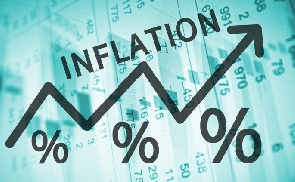The cost of government’s short-term borrowing is projected to decrease in the second half of the year, coinciding with an anticipated decline in inflation.
Treasury bill (T-bill) yields resumed their decline following a 190 basis points (bps) decrease in the annual inflation rate to 23.1 percent in May this year.
The 91-day yield declined 17bps to 24.87 percent, while the 182 and 364-day tenors lost 11bps each to 26.83 percent and 27.82 percent respectively.
In May 2024, the annual inflation rate fell primarily due to a significant 420 basis point drop in food inflation to 22.6 percent. Conversely, non-food inflation saw a slight increase of 10 basis points to 23.6 percent in May from 23.5 percent in April. This figure is expected to decrease further due to a favourable base effect and the Bank of Ghana’s stringent monetary policy aimed at reducing inflation to below 20 percent by year-end.
As a result, analysts predict that yields on T-bills – a crucial funding source for government since it lost access to international markets – will decline.
“We expect the 190 basis point drop in the annual rate to broadly improve inflation risk premium on yields. Thus, coupled with a favourable annual inflation outlook, we anticipate a decrease in T-bill yields to resume – although high government demand for funds may pose some headwinds to the pace of decline,” Databank said in a note to investors.
In the first quarter of 2024, T-bill yields across the curve shed an average of 3.49 percent, 3.63 percent and 3.61 percent for the 91-day, 182-day and 364-day T-bills respectively, amid an over-subscription of GH¢14.11billion.
“Given the near-term inflation outlook, we expect the monetary policy stance to remain appropriately tight to anchor the disinflation process firmly. We maintain our outlook for at least a 400 basis point interest rate cut in 2024, most likely during the September and November policy windows as July may come too soon. We also expect money market rates to stabilise broadly around current levels, at least for the remainder of Q2 2024,” GCB Capital added in its commentary following the latest inflation figures.
This comes as the nation’s domestic debt grew to GH¢278.6billion at end-February 2024, according to the BoG’s Summary of Economic and Financial Data for May 2024.
Overall, the total public debt rose to GH¢658.6billion (62.7 percent of GDP) from GH¢611.2billion at end-2023.
Primary market
The Treasury underperformed in last week’s auction by a margin of 1.36 percent, as investors submitted total bids below the GH¢4.9 billion target. Nevertheless, the Treasury accepted all bids – exceeding the matured bids by 4.84 percent and reflecting a target coverage ratio of 0.99 times.
On Friday, June 21, 2024, the Treasury plans to raise GH¢3.56billion through the issuance of 91-day, 182-day and 364-day bills to support refinancing GH¢3.35billion in maturing bills.
Business News of Thursday, 20 June 2024
Source: thebftonline.com

















